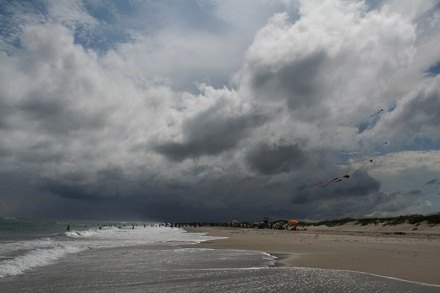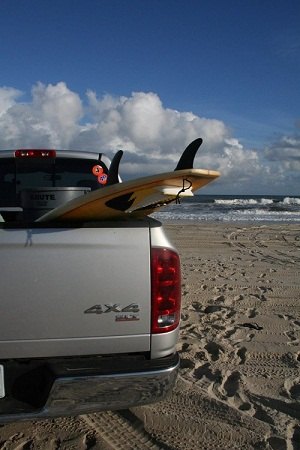Petition Tracks Resistance to ORV Permits
An online petition to remove the ORV rule of February 15 has gathered over 10,000 signatures in its first week. The drafters of the petition hope to alert Congress to the ongoing issues--both cultural and economic--beach closures and driving permits have created on Hatteras and Ocracoke.
Tony Kazulen of Pennsylvania began the petition because he is "trying to get the park service to understand that this is just killing Hatteras," he said in a phone interview on Sunday.
"Nobody that fishes runs the birds over," he said. Himself an avid fisherman, who vacations twice each year in Buxton, Kazulen asserted that anglers and others who value the beaches "don't want to hurt something that we love." Kazulen started this facebook page to spread the word about the petition and share information about the issues.
The petition has gathered signatures from all over the nation, as well as a few international signers. Floridians in particular have signed in large numbers, said Kazulen.
Hatteras and Ocracoke Islands are "not alone" in being subject to increasing regulation by the park service, said Jeffrey Golding of Hatteras, who helped draft the petition. "This is happening all over the country at this point." He cited National Parks in Biscayne Bay, Padre Island and neighboring Cape Lookout as places where recreational access is increasingly restricted by NPS.
It is "becoming extremely obvious at this point" that the park service has an agenda "to remove the people from the seashore," said Golding.
Most of the current legislation was written in Colorado, he said. His impression is that NPS administrators believe that "as long as they leave a small area open, they will have satisfied the requirements for recreational use."
The best possible outcome Golding envisions is that the petition will "alert congress to this significant issue." Golding said there is a "ground surge of federal legislators who are beginning to examine the actions of the Department of the Interior, the EPA, and to question some of the regulations they are issuing." NPS is part of the Department of the Interior.

Golding has educated himself about the applicable legislation, and devotes several hours each day to studying legal precedents and advocating for free, accesible public beaches for both drivers and pedestrians.
"Over 97% of wildlife demise in Cape Hatteras National Seashore is due to storms and predation, not human interaction," said Golding. He challenges the park service to produce peer-reviewed and substantiated science showing otherwise.
Golding moved to Hatteras in 2007, after having visited since the late 1970s. He grew up in Williamsburg, Virginia, which is surrounded by Colonial National Historic Park. "Every experience I'd had was a good one," he said of interacting with park officials at that Park. He was surprised and dismayed to find that working with Cape Hatteras National Seashore was challenging.
The positions taken by park officials to defend their regulation of beach driving are logically inconsistent and paradoxical, said Golding. "The park service is claiming their whole mission is preserving primative wilderness. How are you going to add a parking lot for 200 vehicles and preserve primative wilderness?" he asked.
In a "grand world," said Golding, the park service would both "protect access, and protect plovers." He points to wildlife management policies in other areas that have higher rates of survival for endangered and threatened species that have not been implemented in Cape Hatteras National Seashore.
Both Kazulen and Golding purchased permits for beach driving. "It's tough. It's a tough deal," said Kazulen, who will "respect the rules until something changes."
Golding publishes this blog which often addresses beach access topics and includes information about the most current lawsuit brought over the new legislation.




